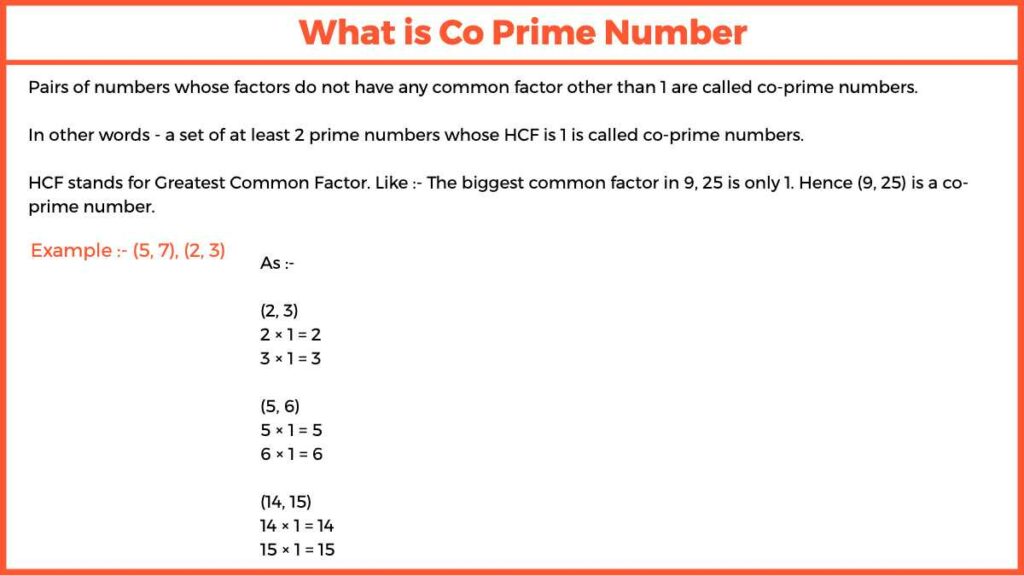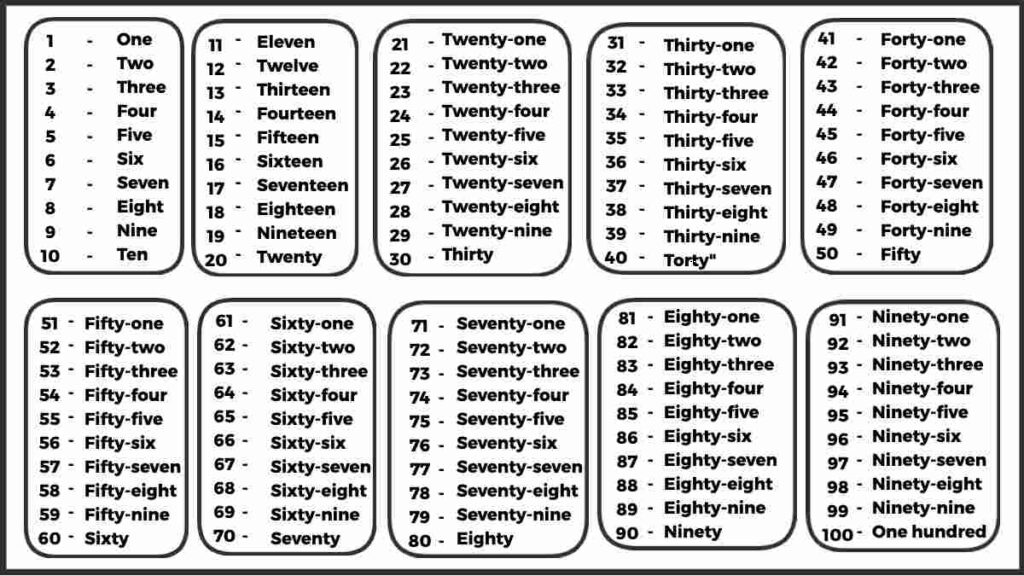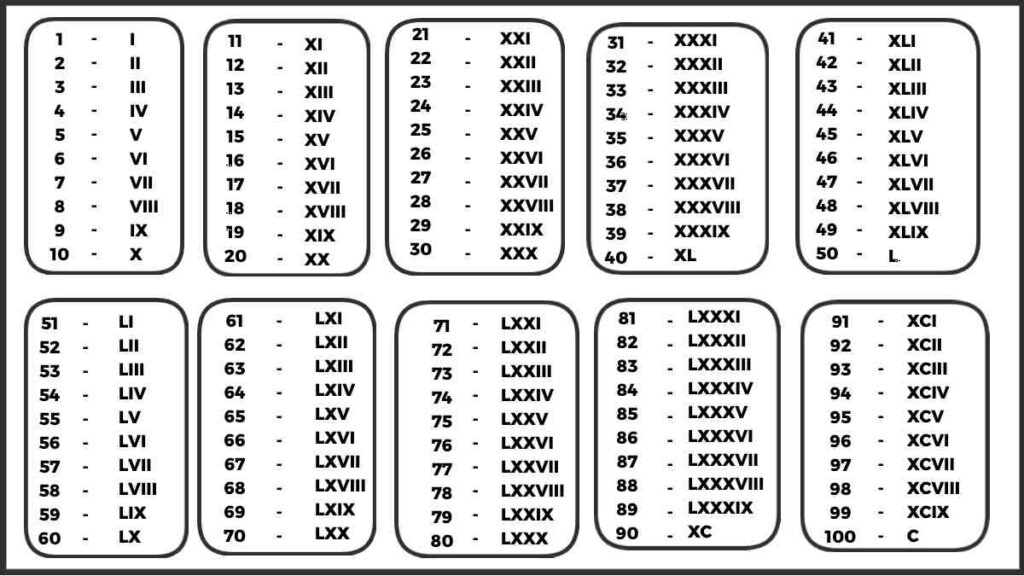If you are going to read complete information about Co Prime Number on this page, then read the article completely.
On the previous page, we have shared the information about Even Number and Odd Number, so read this post also.
Let us read and understand the information about Co Prime Number in today’s post.
What is Co Prime Number
Pairs of numbers whose factors do not have any common factor other than 1 are called co-prime numbers.
In other words – a set of at least 2 prime numbers whose HCF is 1 is called co-prime numbers.
HCF stands for Greatest Common Factor. Like :- The biggest common factor in 9, 25 is only 1. Hence (9, 25) is a co-prime number.
Example :- (5, 7), (2, 3)
Co-prime number is called Co-Prime Number in English.
Note :-
- Co-prime numbers always occur in pairs.
- Any two consecutive numbers are co-prime numbers. For example:- (1, 2), (2, 3), (3, 4)……etc.
- 0 forms the only co-prime number with 1 and -1. For example:- (0, 1), (0, -1)
- It is not necessary that both the numbers should be prime in co-prime numbers.
- 2 Composite numbers can also be co-prime numbers.
- For example:- 8 and 15 here both the numbers are divisible.
- Only 1 comes in the common factor in 8 and 15, so both these numbers are also co-prime numbers.
- In co-prime numbers, it is not necessary that both the numbers or one number should be prime.
Problems Based on Co Prime Numbers
Question 1. Which of the given factors (2, 3), (3, 4), (5, 6), (14, 15), ……………. are co-prime numbers?
Solution :- (2, 3), (3, 4), (5, 6), (14, 15),
We can also understand co-prime numbers in this way –
As :-
(2, 3)
2 × 1 = 2
3 × 1 = 3
(3, 4)
3 × 1 = 3
4 × 1 = 4
(5, 6)
5 × 1 = 5
6 × 1 = 6
(14, 15)
14 × 1 = 14
15 × 1 = 15
In factorization, you can see that all of them have a common 1, that is, they are co-prime numbers.
Question 2. Are the given factors co-prime (14, 15)?
Solution :- In factorization (14, 15),
Divisors of 14 :- 1, 2, 7, 14
Divisors of 15 :- 1, 3, 5, 15
The factors of 14 and 15 have no common number other than 1. So 14 and 15 have only one common factor. Hence 14 and 15 are co-prime numbers.
Question 3. Write the pairs of prime numbers less than 10 whose difference is 2.
Solution :- According to the question,
Prime numbers less than 10 – 2, 3, 5, 7
Numbers with difference of 2 between prime numbers less than 10 = (3, 5), (5, 7)
Answer: (3, 5), (5, 7)
Question 4. Write the pairs of prime numbers less than 20 whose difference is 2.
Solution :- According to the question,
Prime numbers less than 20 – 2, 3, 5, 7, 11, 13, 17, 19
Difference of 2 between prime numbers less than 20 = (3, 5), (5, 7), (11, 13), (17, 19)
Answer: (3, 5), (5, 7), (11, 13), (17, 19)
Question5. Write such pairs of prime numbers less than 50 whose difference is 1.
Solution :- According to the question,
prime numbers less than 50
2, 3, 5, 7, 11, 13, 17, 19, 23, 29, 31, 37, 41, 43, 47
Difference of 1 between prime numbers less than 50 (3 – 2 ) = 1
Answer: (2, 3)
FAQ
Ans. Co-prime Numbers. Co-prime numbers are pairs of numbers that do not have any common factor other than 1.
Ans. Co prime numbers between 1 and 50 are (2, 3), (3, 5), (5, 7), (11, 13), (17, 19), (21, 22), (29, 31) and (41, 43).
Ans. (2,3), (3,5), (5,7), (11,13), (17,19), (21,22), (29,31), (41,43), (59,61), (71,73), (87,88), (99,100), (28,57), (13,14), these are some of coprime numbers from 1 to 100. When we consider any pair of the above, when we determine the greatest common factor will be 1.
Answer. 27 and 72 are not Co-Prime (relatively, mutually prime) – if they have common prime factors, that is, if their greatest (highest) common factor (divisor), gcf, hcf, gcd, is not 1.
| Read More : | ||
| Natural Numbers | Even Numbers | Odd Numbers |
| Whole Number | Integer Number | Prime Numbers |
| Irrational Numbers | Real Numbers | Unreal Numbers |
Hope you have liked the information about Co Prime Number.
Comment for any question related to Co Prime Number.


